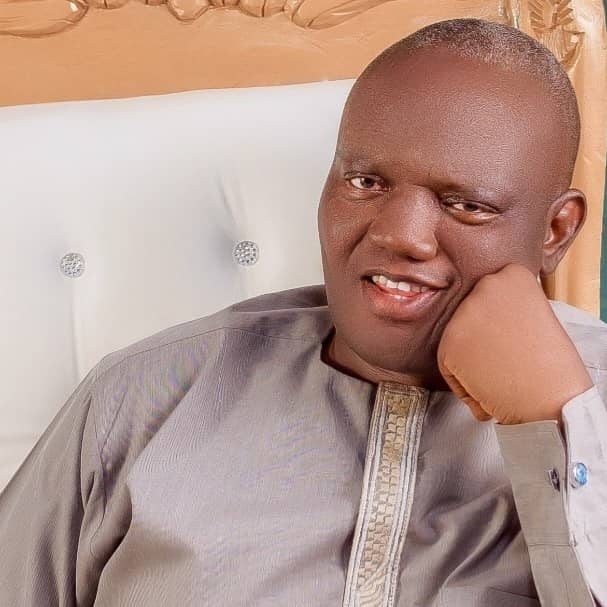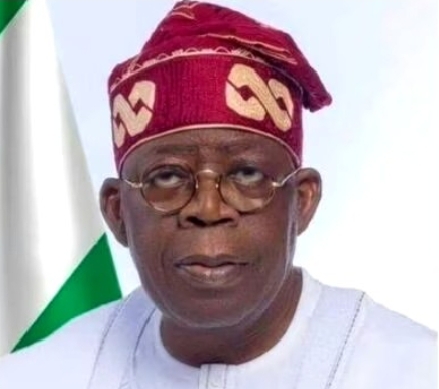Tinubu and the significance of yesterday By abiodun KOMOLAFE

Tinubu and the significance of yesterday
By
abiodun KOMOLAFE

The great British Rock Band, ‘The Beatles’, eulogized ‘Yesterday’ in one of its most memorable hit songs. In the lyrics of the song, the past is framed by the line, “Yesterday, all my troubles seemed so far away,” culminating in a definitive “longing for yesterday.” This is the melancholic interpretation of that great band who defined an era which was a combination of tumult and hope – quite a bizarre cocktail! On the contrary, in Nigeria, only those into self-abnegation, interpreted as a craving for punishment, long for yesterday.
Yesterday was not very edifying in the Nigerian experience, and the statistics are frightening. On the day of independence, October 1, 1960, Nigeria was the 27th largest economy in the world. Fast forward 65 years, and the country is the world’s 30th largest economy. This must be one of the greatest examples of retrogression in the economic history of mankind.

For all manner of reasons, yesterday was a catastrophe for Nigeria, and there can be no longing for it, because it was an era of underachievement, the ‘development of underdevelopment’, as well as ‘growth without development’. Yesterday for Nigeria was a nightmare scenario that has turned into an existential crisis.
Observing a similar era in Italy, as Benito Mussolini marched on Rome to seize and then consolidate power, the brilliant Italian philosopher, Antonio Gramsci, noted in his prison notes that “The crisis consists precisely in the fact that the old is dying and the new cannot be born; in this interregnum a great variety of morbid symptoms appear.” Unfortunately, Gramsci died in Mussolini’s prison due to poor health, as he was indeed opposed to the dictator.
As in Italy in that era, Nigeria went through an interregnum in which morbid symptoms of decay and self-immolation appeared alongside the demons that had to be slain. Warts and all, the Bola Tinubu government must be given acknowledgement for understanding that the monsters released in decades of underachievement had to be contained, then slain. In an existential crisis, there’s no alternative!

Actually, there’s an alternative, and that is, the government could, British-style, attempt to muddle through. The critical difference here is that Britain has very strong institutions to act as a backbone as well as a shock-absorber. Disturbingly, Nigeria is bereft of strong institutions, which means that the very concept of a shock-absorber is fragile.
The Tinubu government has shown great political skills in its attempt to break decisively – and, hopefully, irreversibly – away from a dismal past. One key element here is to go back to Gramsci again! Apart from being renowned for introducing the concept of ‘Cultural Hegemony’ into political philosophy, he also derived from Cultural Hegemony a position that political discourse and parties must define the territory of thoughts and actions in favour of one’s own position.
In this vein, the Tinubu administration has altered Nigeria’s political hegemony, supportive of the position that an emphasis on production-inducing taxation must replace revenue sharing as the operating grundnorm and the engine room of the political economy of the state. This is a breakthrough as well as a breakaway from the root causes of Nigeria’s underdevelopment. We do not need a crystal ball to forecast that fifty years down the road, economic historians would give this administration massive credit for this change in perception, theory and action.
To put things in context, it can also be interpreted as a throwback to a more edifying past. In the 1950s and the 1960s, the economic forward thrust, which, for example, made the Eastern Region of Nigeria the fastest growing subnational entity in the entire British Commonwealth, was predicated on this. A moment that can now be seen as defining and a justification for Tinubu’s intervention in the political economy can be taken from the Western Region of Nigeria in 1961.
The detail makes the difference! In 1961, the regional government in Western Nigeria made tax cuts to shore up its dwindling electoral prospects, largely caused by a drop in commodity prices. There was, however, an unexpected resistance to the tax cuts in some provinces, particularly in Ekiti, Ijebu and Ondo. Over 300 people were arraigned before magistrates across the region for unruly conduct and bound over. The key point here is that people, after an initial resistance in the middle of the 1950s, had come to accept the benefits of paying taxes. Even by today’s standards worldwide, this is real political sophistication.
Obviously, this new paradigm is the basis for the laudable, very well-thought-out tax reforms of the Tinubu administration. Fifteen years down the road, the political maturation fostered by these reforms will definitely manifest as resistance to proposed tax cuts, which will be interpreted by the populace as an attempt to undermine their economic rights, even their right to life. This cultural shift would be the highlight of the president’s very important thrust to redefine Nigeria’s political economy, and the verdict of history will ultimately be very favourable to him and his endeavours.
For years, Nigeria has been basking in the euphoria of a revenue economy, but where has that taken us? As we speak, Nigeria holds a complex position in World Bank assessments. In terms of national income per person, the country faces significant challenges, as evidenced by its recent ranking of 146 out of 191 countries on GDP per capita. However, when viewed by overall economic size, the Bank acknowledges Nigeria as the largest economy in Africa by Gross Domestic Product (GDP). Despite its status as Africa’s economic giant, the World Bank officially classifies the country as a Lower Middle-Income Economy.
Again, the question is: do we need the World Bank to tell us that all is not well with Nigeria? Of course, stepping onto the streets will reveal the gravity of the mass misery ravaging our land. If we look at the faces of the people, and evaluate the children who daily trek to their schools with practically nothing in their stomachs, and simply because their parents want to save the N200 or N300 cost of Korope, then maybe we can have better words to situate our predicament.
In the 1960s, things were not this bad because there was a real state. The simple truth is that the political leaders of that era were adequately prepared for leadership roles. Those leaders went into politics because they believed in something, and they pursued it diligently. Since they had a clear agenda for development, their focus was fundamentally different from what obtains these days.
But what can we say about our latter-day leaders? A majority of them are in politics purely because of limited economic opportunities. Since they’re driven only by the fear of personal poverty, they’re bereft of any ideological base. They are not developmentalists because they’re not in politics to build or develop anything. They are children of entitlement, simply dancing away their people’s sorrow. If this were not the case, when was the last time a major factory was established in a town like Ijebu-Jesa in Osun State?
The Agent General of Western Nigeria in London during the First Republic was the de-facto Minister of Export, coordinating the sale of exports like cocoa, palm oil, rubber and the like. It was he who would negotiate markets, shipping and insurance. He always had strong targets, so he was always a very busy man. If we may ask, what is Nigeria’s High Commissioner to the UK selling to the outside world and how much is he remitting to Nigeria as proceeds from the sale of our exports? What’s his target and how is he coping with it?
Yes, personal charisma might win an election, but, while the principalities and powers of the past cannot be reversed, it offers a barometer for learning. Consider Obafemi Awolowo’s 1952 speech to the Western Region House of Assembly on the establishment of the Cooperative Bank; it reads as if the late sage were delivering a Nobel Prize in Economics Acceptance Speech. Characteristically, Awo’s speech was a display of deep, powerful and dialectical thinking. Unfortunately, the majority of those in power today have neither that depth nor the intellectual interest. This critical lack of clear direction and intellectual leadership is one of the primary reasons why Nigeria struggles to survive.
Admittedly, what grows a country are not men but the system. However, the system is always put in place by men. More importantly, the matter isn’t about the absence of documents, but about the presence of a functioning, ethical state. Across the ‘parties’, and frankly in most states of the federation, there are dozens of aspirants who are not distinguishable from one another. They are just vying for access to power and resources, rather than the upliftment of the people and upholding the legacy in the Western Region that affirmed the very purpose of governance and indeed of politics itself: ‘To make life more abundant’.
Who knew about the Port of Singapore in the 1960s? So, what exactly went wrong, and where exactly did our leaders lose the plot? More critically, where is the substantive plan to bolster security, the very foundation upon which all other state activities must rest? Tragically, the situation is deteriorating so fast that some institutions of higher learning have had to issue curfew timetables for when their students are allowed to move or are forced to go on empty stomachs for the fear of bandit attacks.
With Tinubu now in the saddle, the optics may be looking good. Who knows?
May the Lamb of God, who takes away the sin of the world, grant us peace in Nigeria!
‘KOMOLAFE writes from Ijebu-Jesa, Osun State, Nigeria (ijebujesa@yahoo.co.uk; 08033614419 – SMS only)




